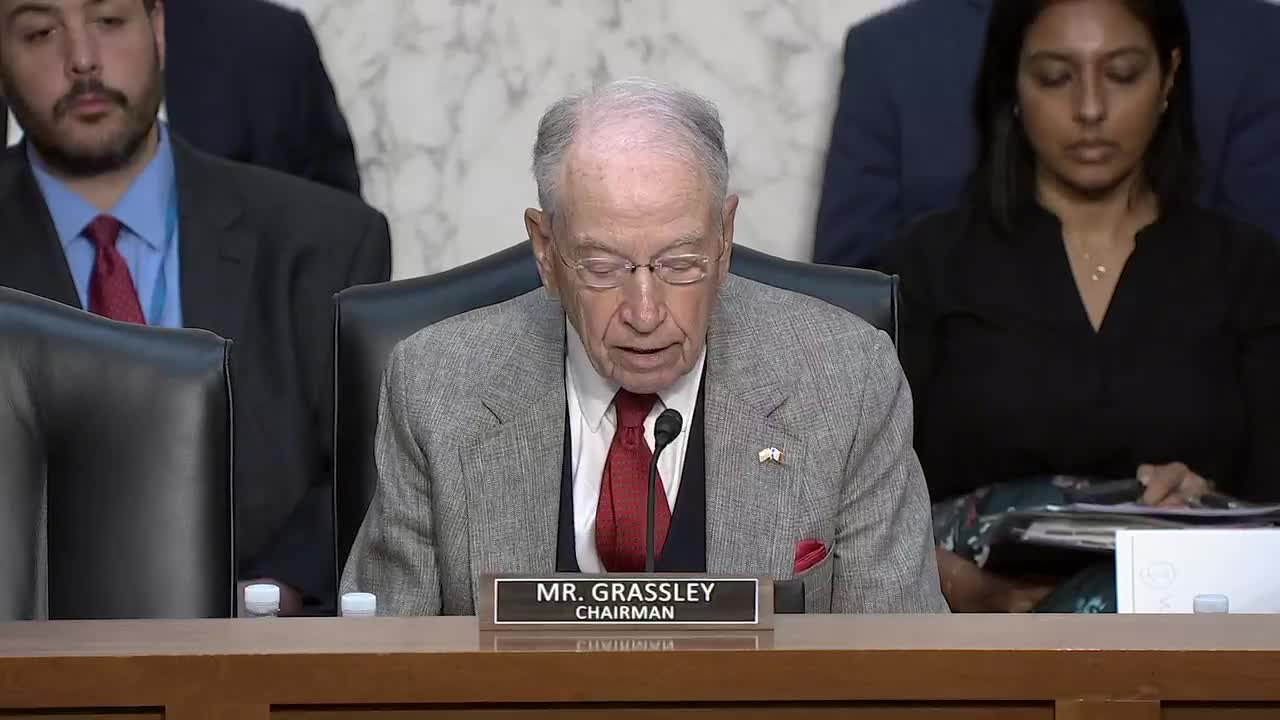Senate Committee Questions Nominees on Federalism and Judicial Philosophy
July 30, 2025 | Judiciary: Senate Committee, Standing Committees - House & Senate, Congressional Hearings Compilation
This article was created by AI summarizing key points discussed. AI makes mistakes, so for full details and context, please refer to the video of the full meeting. Please report any errors so we can fix them. Report an error »

In a pivotal session of the U.S. Senate Committee on the Judiciary, the atmosphere was charged with anticipation as nominees faced intense scrutiny regarding their views on critical legal and social issues. The meeting, held on July 30, 2025, was marked by pointed questions and significant discussions about federalism, gender roles, and the interpretation of constitutional rights.
As the nominees, including Mr. Dunlap and Mr. Tung, prepared to defend their qualifications for lifetime appointments to the U.S. Court of Appeals, Senator Dick Durbin emphasized the limited time available for such an important evaluation. "We have five minutes to ask questions to determine whether or not you will receive a lifetime appointment to the second highest court in the United States," he stated, highlighting the challenge of assessing complex beliefs and values in such a brief window.
A key moment arose when the discussion turned to federalism, a principle that underscores the division of powers between state and federal governments. One nominee expressed pride in representing the Conference of Chief Justices, stating, "Federalism is a part of our structure of separation of powers that is important to our system of government." This assertion underscored the nominee's commitment to protecting the rights of the people through a balanced distribution of power.
However, the conversation quickly shifted to more contentious topics, particularly concerning gender roles and originalism. Senator Durbin referenced a 2004 speech by Mr. Tung, where he articulated beliefs about traditional family roles and gender distinctions. "You said you believe in emphasizing family and what it means for a woman to be a good wife or partner," Durbin quoted, pressing the nominee to clarify whether his views had evolved over the years. The senator's inquiry suggested a concern that such perspectives could influence judicial decisions on contemporary issues like marriage equality and reproductive rights.
Mr. Tung's recent remarks to the Federalist Society, where he asserted that originalism would not support constitutional rights to abortion or same-sex marriage, further fueled the debate. This stance raised alarms among committee members about the potential implications for civil rights and liberties under his judicial philosophy.
As the session unfolded, it became clear that the nominees' responses would not only shape their futures but also reflect broader societal values and the evolving landscape of American law. The committee's deliberations highlighted the delicate balance between tradition and progress, leaving observers to ponder the lasting impact of these judicial appointments on the nation's legal framework.
As the nominees, including Mr. Dunlap and Mr. Tung, prepared to defend their qualifications for lifetime appointments to the U.S. Court of Appeals, Senator Dick Durbin emphasized the limited time available for such an important evaluation. "We have five minutes to ask questions to determine whether or not you will receive a lifetime appointment to the second highest court in the United States," he stated, highlighting the challenge of assessing complex beliefs and values in such a brief window.
A key moment arose when the discussion turned to federalism, a principle that underscores the division of powers between state and federal governments. One nominee expressed pride in representing the Conference of Chief Justices, stating, "Federalism is a part of our structure of separation of powers that is important to our system of government." This assertion underscored the nominee's commitment to protecting the rights of the people through a balanced distribution of power.
However, the conversation quickly shifted to more contentious topics, particularly concerning gender roles and originalism. Senator Durbin referenced a 2004 speech by Mr. Tung, where he articulated beliefs about traditional family roles and gender distinctions. "You said you believe in emphasizing family and what it means for a woman to be a good wife or partner," Durbin quoted, pressing the nominee to clarify whether his views had evolved over the years. The senator's inquiry suggested a concern that such perspectives could influence judicial decisions on contemporary issues like marriage equality and reproductive rights.
Mr. Tung's recent remarks to the Federalist Society, where he asserted that originalism would not support constitutional rights to abortion or same-sex marriage, further fueled the debate. This stance raised alarms among committee members about the potential implications for civil rights and liberties under his judicial philosophy.
As the session unfolded, it became clear that the nominees' responses would not only shape their futures but also reflect broader societal values and the evolving landscape of American law. The committee's deliberations highlighted the delicate balance between tradition and progress, leaving observers to ponder the lasting impact of these judicial appointments on the nation's legal framework.
View full meeting
This article is based on a recent meeting—watch the full video and explore the complete transcript for deeper insights into the discussion.
View full meeting